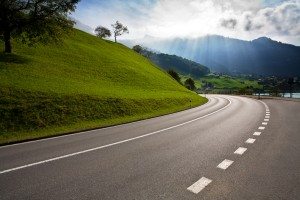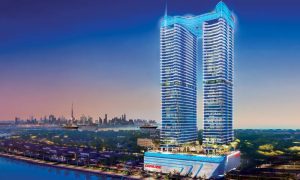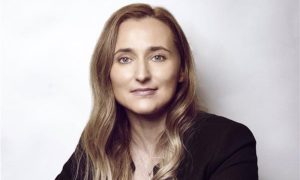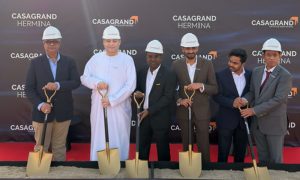Ahmed Al Muhairbi’s green ambitions for Dubai
Head of the Dubai Supreme Council of Energy explains his strategy for making the emirate the global capital of green economy

The concept of a green economy has become a centre of policy debate in recent years in Dubai. Carbon reduction initiatives, such as renewable energy generation, smart grid and buildings’ energy efficiency, are in full force across the city, and experts believe that this push will spur government spending and private investment worth billions of dollars.
The Dubai Green Economy Partnership (GEP) programme, launched by His Highness Sheikh Hamdan bin Mohammed bin Rashid Al Maktoum, Crown Prince of Dubai, aims to create new commercial opportunities through a public-private partnership (PPP) model.
Ahmed Al Muhairbi, Secretary General of the Dubai Supreme Council of Energy (DSCE) and Chairman of Dubai Green Economy Partnership, tells Ashish Saraf that enhancing participation from the private sector through the PPP model is required to support energy diversification and a low-carbon growth path for Dubai and the wider region.
It’s widely accepted that the public and private sectors need to collaborate closely in order to realise the vision of a more sustainable GCC. What are your expectations from the Dubai Green Economy Partnership initiative?
I believe that the way forward to promote green economy is through public-private partnership. The programmes and initiatives of the Dubai GEP aim to enable the growth of green trade and investment and accelerate the adoption of green technologies, products and services across regional and global markets.
My vision towards promoting a green economy in the Middle East combines embracing momentum and building capacity. The Dubai GEP is the one and only PPP on green economy in the Middle East, and as such must showcase and maximise the exposure in international and national events and exhibitions on green economy. In that context, the Dubai GEP will undertake a Green Trade Mission and join international events such as the Paris UNFCCC COP 21 in late November 2015. In addition, we will continue organising our events to learn best practices on state-of-the-art technologies and new approaches, and will start a new research committee on green economy.
In Dubai Supreme Council of Energy, one of the key mechanisms defined in our strategy is the funding process for the projects and the measures planned until 2030. We have planned some of our new projects to be funded through PPP and have developed a regulatory framework to attract international investment to Dubai. For example, phase II of the Sheikh Mohammed bin Rashid Solar Park project is based on the PPP model for financing. We have seen great interest from the technology and financing firms to partner with us on the execution of the planned projects, and we will continue to facilitate this kind of engagement.
The Dubai Global Energy Forum (DGEF 2013) held in April 2013 was attended heavily by the investment and technology firms, and we have promoted Dubai’s position on partnerships and as a hub for clean energy technologies and services (solar panels, equipment and others).
Regional cities still have the highest carbon footprints per capita in the world. What steps should be taken to secure future energy supplies and tap the potential sources of fuel to meet ever-increasing demand?
We are building the momentum towards minimising carbon footprint across sectors. Dubai recently launched the Carbon Abatement Strategy (CAS) to develop CO2 emission targets across all sectors, with a focus on power supply, transportation and waste. It supports the UAE Vision 2021, which aims to transform the country to be one of the best in the world by 2021.
We have planned a comprehensive approach to achieve sustainable growth through the deployment of the Dubai Integrated Energy Strategy (DIES) 2030. A roadmap has been created, reflecting the priorities of energy supply and demand abatement measures.
Currently, 99% of Dubai’s energy is generated from gas. But as per DIES, by 2030 Dubai will have diversified its fuel mix by adding new energy sources such as 12% from clean coal, 5% from renewable energy including solar power, 12% from nuclear power and 71% from gas. The objective is to reduce consumption by 30% over the next fifteen years. We are in the process of revising our energy mix targets to reflect 7% by 2020 and 15% by 2030 for solar.
Through DIES, the Supreme Council of Energy conducts a board meeting on a bi-monthly basis, attended by HH Sheikh Ahmed bin Saeed Al Maktoum, chairman of DSCE, as well as the Vice Chairman, Secretary General and board members, to discuss and review strategy progress and ensure alignment.
DSCE has partnered with the Dubai Carbon Centre of Excellence (DCCE) to verify preliminary studies on carbon dioxide emissions. Emirate-wide as well as region-wide research on greenhouse gas emissions is being carried out, and frameworks are being developed with relevant industries, aimed at introducing a comprehensive carbon dioxide abatement programme.
At the same time, the establishment of the Dubai Regulatory & Supervisory Bureau (RSB) is aimed at creating the framework to foster legislation and protect stakeholders.
While diversification of energy supply is crucial, what role does demand-side management play in reducing emissions? Do you think a comprehensive demand-side strategy can create big opportunities for energy efficiency companies in the region?
Our demand-side management strategy, which was launched in June 2013, has eight programmes to manage energy demand in Dubai. These include regulations for green building construction, retrofitting of existing buildings, district cooling, wastewater reuse, standards for appliances and equipment, energy-efficient street lighting and smart grid.
The Council is working actively with various energy service companies to retrofit existing buildings and to set up a regulatory framework to attract investors. We engage with local, regional and international bodies that represent government, industry, financing and non-government organisations. These relationships have provided a good benchmarking tool to assess where we are now and what we can take on board for the next phase. We employ a thorough evaluation of what is available in the region and globally, then adapt or devise our own plan to implement in Dubai. This fits well with our approach to promote the principle of Public-Private Partnerships.
We have a number of projects and programmes underway, addressing a regulatory framework, district-cooling, solar power, waste-to-energy, alternative transportation fuels, building efficiencies, the ESCO model and others.
How does DSCE promote energy efficiency in the UAE?
We organise the Emirates Energy Award every two years. The award recognises the efforts of the public and private sectors across the region in energy efficiency, energy projects and education and research in the energy sector. There is also a special recognition award to honour outstanding contributors to the energy sector.
What are the achievements of DSCE?
DSCE is working towards making Dubai the global capital for green economy. In 2011, we implemented a new utilities tariff, which resulted in the reduction of water and electricity consumption by 6% and 2.2% respectively. Between 2010 and 2012, we saved around 1,508GWh of electricity and 12,837MIGD of water per capita after implementing beneficial quick wins at Dubai Government organisations, such as controlling their ambient temperature settings at 24 degrees during working hours and 27 degrees after working hours, switching off lights after working hours, replacing conventional lights with LED lights and using solar energy to heat water.
We launched the first phase [a 13MW plant] of the Mohammed bin Rashid Al Maktoum Solar Park in 2013. Last month, DEWA selected a consortium led by ACWA Power, with international operations in nine countries, as first-rank bidder to develop, construct, own and operate phase II of the solar park with a net power capacity of 200MW. The winning bid has set a new global benchmark as it reduces the cost of electricity at a levelised tariff of $0.0584/kWh.
In December last year, Dubai passed a resolution which allows residents to obtain the licences and approvals to install solar panels on the roofs of their homes and businesses. With this resolution, the city is set to become the first major rooftop PV market in the region. Once the regulations are implemented, solar panels will appear on rooftops all around Dubai.
Will falling oil prices derail the shift to renewable sources of energy, such as wind and solar power?
The momentum towards excelling in clean energy has already built up in Dubai. It won’t change because the oil prices have reduced. We are not moving away from our plans to boost solar energy in the country. It’s a global commitment. More and more governments across the world are committing themselves to a cleaner environment. The oil market is volatile. Therefore, solar is a strategic energy source that can provide stability and complement Dubai’s power requirements.
A Dubai GEP delegation attended the World Summit of Regions for Climate recently and discussed potential collaboration with the UNEP (United Nations Environment Programme) and the UNSDSN (United Nations Sustainable Development Solutions Network) on sustainable tourism. In the lead-up to the Expo, how well is the emirate placed to promote green tourism?
Dubai’s tourism plans continue to grow at a rampant pace, and these partnerships will play an important role in maintaining the sustainability of the emirate. The private sector in Dubai, hospitality in particular, had started sustainability initiatives even before us.
They have been striving towards minimising their energy nd water bills. We are working with energy service companies to retrofit existing buildings, including hotels, and establish a green code for future buildings, focusing on air conditioning and lighting. Simultaneously, hotels have their own initiatives to rationalise energy consumption. We want to ensure that Expo 2020 has the minimum footprint possible.
How do you engage member of DSCE entities in the development of green energy in Dubai?
The energy sector is a key player in our DIES 2030 for the supply and integration of clean technology. This is reflected in the DSCE’s structure, where the entities are members with an execution role defined for our projects, including solar. For instance, the funding of the first phase of the landmark Mohammed bin Rashid Al Maktoum Solar Park is allocated equally among the DSCE’s entities.
A strong platform supported by member entities of the DSCE, which includes DEWA, Dubai Municipality, DUBAL, ENOC, the Dubai Petroleum, DUSUP, Department of Petroleum Affairs, Dubai Nuclear Energy Committee and RTA has been established to develop several strategic measures and projects in Dubai, where energy efficiency, demandabatement and sustainability are high on our agenda.























